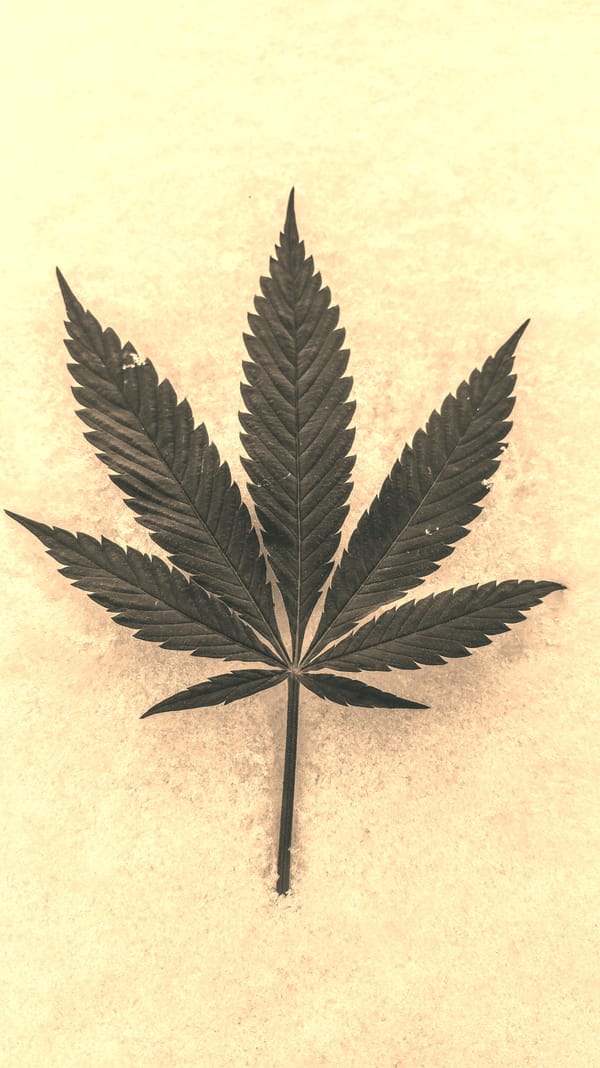I remember the feeling of complete desperation when the weight of sleepless nights became too much to bear during the pandemic. Tears blurred my vision as I stepped into my local health shop, and that's when the benefits of CBD came onto my radar. The lady at the counter introduced me to a 500mg strength CBD oil and gave me hope of relaxation and a deep sleep.
Within days, the transformation was evident. My sleep was deeper, more restorative. The hope of better sleep turned into reality and I slowly started feeling more refreshed and my head less foggy.
Taking charge of my sleep became a priority. Instead of scrolling through devices before bedtime, I turned to a warm bath and a captivating book. My bedside table transformed into a haven, adorned with books, a fragrant candle, and a coaster for my calming herbal tea. The CBD oil found its place here too, integrating into my nightly ritual. However, while the CBD oil made a difference, challenges like depression, stress, and an overactive mind remained. It made me wonder: what other factors commonly disrupt sleep for many of us? And how many others are grappling with these challenges?
Considering CBD? Scroll down for CBD FAQ's.

Understanding Sleep Disturbances
Perhaps you can relate to a lack of sleep. Here are some common factors and conditions that might make it hard for people to fall asleep or maintain sleep:
1. Stress and Anxiety: Worries about work, school, health, finances, or family can keep your mind active at night, making it hard to sleep. Chronic stress can lead to chronic insomnia.
2. Depression: Sleep problems and depression often go hand in hand. Insomnia can be a symptom of depression, and sleep deprivation can exacerbate depressive symptoms.
3. Caffeine, Nicotine, and Alcohol: Consuming these substances, especially in the evening or closer to bedtime, can interfere with sleep. While alcohol might make you feel drowsy, it can disrupt the sleep cycle later in the night.
4. Late Meals: Eating big or spicy meals before bedtime can cause discomfort and indigestion, which can interfere with sleep.
5. Environmental Factors: Noisy environments, uncomfortable room temperatures, or exposure to light can prevent deep, restorative sleep. Electronic devices, like smartphones and computers, emit blue light which can reduce melatonin production, a hormone responsible for sleep.
6. Medications: Some drugs can interfere with sleep, such as certain antidepressants, medications for high blood pressure, stimulants, corticosteroids, and allergy medications.
7. Chronic Pain: Conditions like arthritis, back pain, headache, and other chronic pains can interfere with sleep.
8. Sleep Disorders:
Insomnia: Difficulty in falling asleep or staying asleep.
Sleep Apnea: Breathing interruptions during sleep which can cause awakenings.
Restless Legs Syndrome (RLS): An uncomfortable sensation in the legs leading to an urge to move them, which can interfere with falling asleep.
Periodic Limb Movement Disorder (PLMD): Involuntary leg twitching or jerking movements during sleep.
Narcolepsy: Daytime "sleep attacks" and sudden loss of muscle tone.
9. Travel or Work Schedule: Jet lag or working late or early shifts can disrupt your body's circadian rhythms, making it hard to sleep.
10. Hormonal Changes: Fluctuations in hormones – such as during menstrual cycles, pregnancy, and menopause – can affect sleep patterns.
11. Medical Conditions: Some medical conditions such as asthma, hyperthyroidism, gastroesophageal reflux disease (GERD), Parkinson's disease, and Alzheimer's disease can interfere with sleep.
12. Ageing: As people get older, they might wake up more frequently during the night and earlier in the morning.
13. Mental Disorders: Conditions such as bipolar disorder can disrupt sleep patterns.
14. Unsettled Routines: Inconsistent sleep schedules or not having a bedtime routine can make it harder to sleep.
15. Overactive Mind: Some people naturally have a more active mind and may have difficulties quieting their thoughts to fall asleep.
In my case, it was a combination of depression, stress and anxiety, environmental factors, unsettled routines, and an overactive mind.
The Intricate Dance of Sleep and Mood

Sleep and mood are deeply interconnected. A lack of sleep can disrupt our brain's neurotransmitters, especially serotonin, leading to mood fluctuations. Sleep is also when our brain processes emotions, and without adequate rest, this can be hampered. Beyond the mind, sleep deprivation can lead to physical fatigue. The term 'sleep depression' signifies the vicious cycle where poor sleep can lead to depressive symptoms, which in turn can disrupt sleep, creating a feedback loop that's hard to break.
Recognising the signs early can be empowering. Simple lifestyle changes, like a regular sleep schedule or relaxation techniques, can make a world of difference.

Have you ever considered the power of stillness in our bustling world? Dive into my next exploration: a meditation technique that resonated with me - The Art of Doing Nothing. Are you ready to explore the tranquillity of stillness with me?
CBD FAQ's
What is CBD?
CBD, or cannabidiol, is a natural compound found in the Cannabis sativa plant. Unlike THC (tetrahydrocannabinol), another compound in the plant, CBD doesn't produce a "high" or psychoactive effects.
How does CBD work in the body?
CBD interacts with the body's endocannabinoid system (ECS), a complex cell-signaling system that plays a role in regulating a range of functions and processes, including sleep, mood, appetite, and memory. While the exact mechanisms are still being researched, CBD is believed to enhance the effects of endocannabinoids produced by the body.
Is CBD legal?
The legality of CBD varies by country and even within regions of countries. In many places, the legality depends on the source of CBD (hemp-derived vs. marijuana-derived) and its THC content. It's essential to check local regulations before purchasing or using CBD.
Can CBD get you high?
No, CBD itself does not produce a "high" or psychoactive effects. It's THC, another compound in the cannabis plant, that's responsible for the intoxicating effects. Most CBD products contain little to no THC.
What are the potential benefits of CBD?
Research suggests that CBD may offer a range of health benefits, including pain relief, reduction of anxiety and depression, alleviation of cancer-related symptoms, and potential neuroprotective properties. However, more research is needed to confirm these findings.
Are there any side effects of using CBD?
While CBD is generally considered safe, some people may experience side effects like fatigue, changes in appetite, diarrhea, or dry mouth. It's always a good idea to consult with a healthcare professional before starting any new supplement.
How can I take CBD?
CBD is available in various forms, including oils and tinctures, edibles, capsules, vapes, creams, and balms. The best method depends on your preferences and the reason for using CBD.
How much CBD should I take?
The right dosage of CBD varies from person to person and depends on factors like body weight, the reason for use, and the concentration of the CBD product. It's recommended to start with a low dose and gradually increase until you find what works best for you.
Can I take CBD with other medications?
CBD can interact with certain medications, potentially altering their effects. If you're on medication, it's crucial to consult with a healthcare professional before using CBD.
Is CBD addictive?
Current research suggests that CBD is not addictive and does not lead to substance abuse or dependence. However, as with any supplement, it's essential to use it responsibly.





